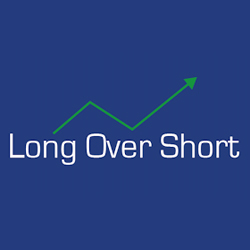The world of finance and investing is continually evolving, and emerging technologies like quantum computing and artificial intelligence are transforming how we trade derivatives. Derivative trading has always been a complicated and risky endeavor but implementing quantum AI can insure an edge over the competition. In this article, we will discuss the basics of derivative trading and quantum AI, explore the key components of a quantum AI trading system, delve into developing a quantum AI trading strategy, and address the challenges that come with quantum AI trading.

Understanding Derivative Trading and Quantum AI
Derivatives are financial instruments whose value is determined by an underlying asset or group of assets. They can be used to hedge against risk or speculate on market movements through buying/selling contracts. Derivatives include futures, options, swaps, and other complex financial instruments.
Derivative trading has become increasingly popular in recent years due to its potential for high returns. However, it also carries a significant amount of risk, and traders need to have a deep understanding of the underlying assets and market conditions.
The Role of Artificial Intelligence in Trading
Artificial intelligence or AI is the simulation of human intelligence in machines. AI has been used in various industries, including finance, to automate processes and develop advanced systems that can analyze large amounts of data quickly and accurately.
Implementing AI in trading can improve efficiency, accuracy, and reduce the potential for human error. AI algorithms can analyze market trends and make predictions based on historical data, helping traders make informed decisions.
Quantum AI: The Next Frontier in Trading Technology
Quantum AI is a technology that leverages the principles of quantum mechanics and AI in trading. It has the potential to revolutionize the financial industry by improving speed, accuracy, and returns.
Quantum computing uses qubits, which can exist in multiple states simultaneously, to perform complex calculations with increased speed and clarity. This allows quantum AI systems to analyze vast amounts of data in real-time, providing traders with valuable insights into market trends and potential opportunities.
Quantum AI can also help traders manage risk more effectively. By analyzing multiple scenarios simultaneously, quantum AI systems can identify potential risks and develop strategies to mitigate them. One such system is the Quantum AI trading platform, where you can access a range of advanced tools, including quantum computing.
Overall, the combination of derivatives trading and quantum AI has the potential to transform the financial industry. Traders who can successfully navigate this new frontier will have a significant advantage in the market and be well-positioned to achieve high returns while managing risk effectively.
Key Components of a Quantum AI Trading System
In this article, we will explore the key components of a quantum AI trading system and how they can help investors make better decisions.
Quantum Computing and its Advantages
Quantum computing has the potential to revolutionize the world of finance. Conventional computers can only process information in a linear fashion, whereas quantum computers can process information in parallel. This means that quantum computers can solve complex optimization and predictive modeling problems that are beyond the capabilities of conventional computers. The key advantages of quantum computing include speed, parallel processing, and the ability to handle big data.
Quantum computing is still in its infancy, but it has already shown great promise in the field of finance. Quantum AI trading systems can analyze massive amounts of financial data quickly and accurately, which can help investors make better decisions.
Data Analysis and Pattern Recognition
Data analysis and pattern recognition are key components of any trading system. Quantum AI systems leverage the advanced computational power of quantum computing to analyze massive amounts of financial data quickly. Pattern recognition algorithms learn from past trends and can help identify emerging patterns to predict future market movements.
Quantum AI trading systems can analyze a wide range of data sources, including historical market data, news articles, and social media sentiment. By analyzing these data sources, quantum AI trading systems can identify patterns and trends that may be missed by human analysts.
Risk Management and Portfolio Optimization
Risk management and portfolio optimization are critical aspects of any trading system. Quantum AI can help identify ideal risk-reward ratios by analyzing historical data, news, and other sources of market information. It can also optimize an investor’s investment portfolio to minimize risk and maximize returns.
Quantum AI trading systems can analyze a wide range of data sources to identify potential risks and opportunities. By analyzing historical market data, news articles, and social media sentiment, quantum AI trading systems can identify potential risks and opportunities that may be missed by human analysts.
Quantum AI trading systems can also optimize an investor’s investment portfolio to minimize risk and maximize returns. By analyzing an investor’s risk tolerance, investment goals, and other factors, quantum AI trading systems can recommend an optimal portfolio allocation.
Conclusion
Quantum AI trading systems are a new frontier in the world of finance. They leverage the power of quantum computing and artificial intelligence to analyze massive amounts of financial data quickly and accurately. By analyzing historical market data, news articles, and social media sentiment, quantum AI trading systems can identify potential risks and opportunities that may be missed by human analysts. Quantum AI trading systems can also optimize an investor’s investment portfolio to minimize risk and maximize returns. As quantum computing continues to evolve, quantum AI trading systems will become an increasingly important tool for investors.
Developing a Quantum AI Trading Strategy
Identifying Profitable Trading Opportunities
The first step to developing a quantum AI trading strategy is identifying profitable trading opportunities. This can be done by analyzing past market trends and predicting future market movements using machine learning algorithms. However, it is important to note that past performance is not always indicative of future results. Market conditions can change rapidly, and unexpected events can significantly impact the performance of trading strategies.
Therefore, it is important to consider multiple factors when identifying trading opportunities. These factors may include economic indicators, geopolitical events, and company-specific news. By taking a holistic approach to market analysis, a quantum AI trading system can identify opportunities that may be missed by traditional trading strategies.
Implementing Machine Learning Algorithms
Machine learning algorithms are a crucial part of any quantum AI trading system as they can learn from past trends and adjust trading strategies accordingly. A well-designed system can also identify and eliminate trading strategies that do not consistently produce positive returns. However, the implementation of machine learning algorithms requires significant expertise and resources.
Developing effective machine learning algorithms involves selecting appropriate data sources, designing algorithms that can analyze and interpret that data, and testing those algorithms using historical data. Additionally, ongoing monitoring and refinement of algorithms are necessary to ensure that they continue to perform effectively in changing market conditions.
Backtesting and Performance Evaluation
Backtesting involves testing a trading strategy using historical data to evaluate its effectiveness. Performance evaluation assesses the success of a trading strategy over a given period. Backtesting and performance evaluation ensure that a quantum AI trading system is effective and profitable. However, it is important to note that backtesting and performance evaluation are not foolproof.
Backtesting relies on historical data, which may not accurately reflect current market conditions. Additionally, performance evaluation may not capture all factors that impact the success of a trading strategy. Therefore, ongoing monitoring and refinement of trading strategies are necessary to ensure continued profitability.
Overall, developing a quantum AI trading strategy requires a comprehensive understanding of market dynamics, expertise in machine learning algorithms, and ongoing monitoring and refinement. By leveraging these tools and strategies, a quantum AI trading system can identify profitable trading opportunities and generate consistent returns.
Overcoming Challenges in Quantum AI Trading
Quantum AI trading is an innovative approach to finance that combines the power of quantum computing with artificial intelligence. While this technology shows great promise, there are several challenges that must be overcome to fully realize its potential.
Addressing Technological Limitations
One of the biggest challenges facing quantum AI trading is the current limitations of quantum computing technology. While quantum computers have the potential to perform complex calculations at lightning speeds, they are still in the early stages of development and are not yet widely available. This makes it difficult to develop and implement high-performance quantum AI trading systems.
However, as technology continues to advance, quantum computing is becoming more accessible. This is good news for the world of finance, as it means that developing and maintaining quantum AI trading strategies will become easier and more efficient.
Ensuring Data Security and Privacy
Data security and privacy are critically important in the world of finance. When implementing a quantum AI trading system, handling sensitive financial information is a must. As such, it is essential to put adequate measures in place to ensure data security and privacy.
Quantum AI trading systems must be designed with security in mind. This means implementing robust encryption protocols, multi-factor authentication, and other security measures to protect against cyber threats and data breaches.
Navigating Regulatory and Compliance Issues
The financial industry is heavily regulated, with trading regulations constantly evolving. Developing a quantum AI trading system requires navigating complex regulatory and compliance issues on a global scale.
Regulatory compliance is a critical aspect of quantum AI trading. Financial institutions must ensure that their quantum AI trading systems comply with all applicable regulations and laws, including those related to data privacy, cybersecurity, and financial reporting.
Overall, while there are several challenges to overcome in the world of quantum AI trading, the potential benefits make it an exciting area of development. By addressing technological limitations, ensuring data security and privacy, and navigating regulatory and compliance issues, financial institutions can leverage the power of quantum computing and artificial intelligence to generate positive results in the world of finance.
Conclusion
In conclusion, quantum AI has the potential to revolutionize derivative trading by improving speed, accuracy, and returns. Developing a quantum AI trading strategy involves identifying profitable trading opportunities, implementing machine learning algorithms, and conducting testing and performance evaluation. Overcoming challenges in quantum AI trading requires addressing technological limitations, ensuring data security and privacy, and navigating regulatory and compliance issues. If done well, derivative trading with quantum AI can be a successful and profitable endeavor.

 Hot Features
Hot Features











